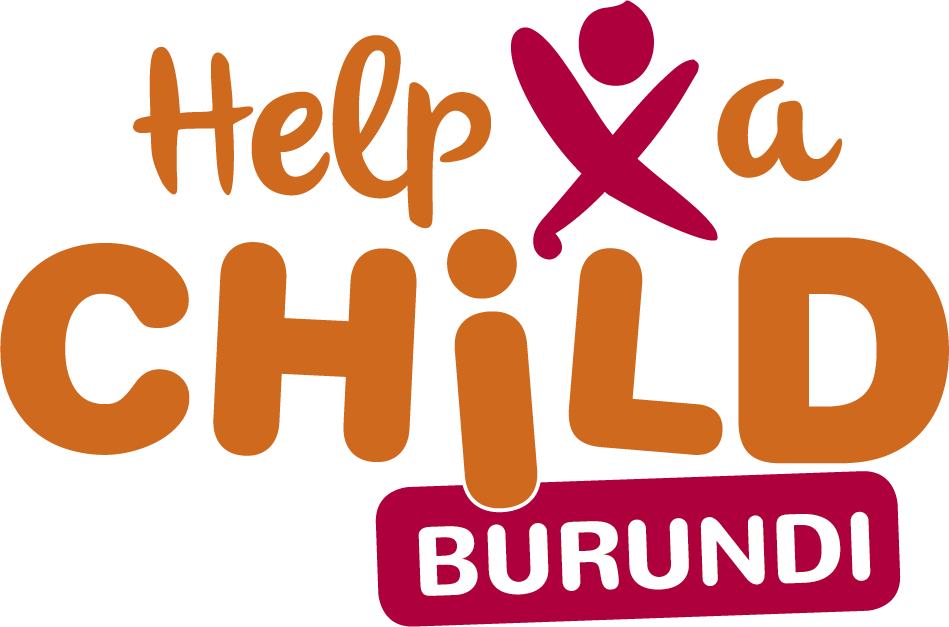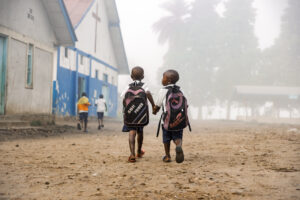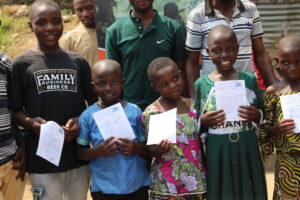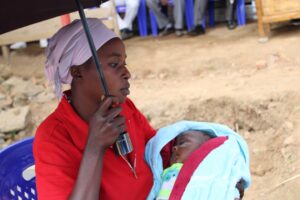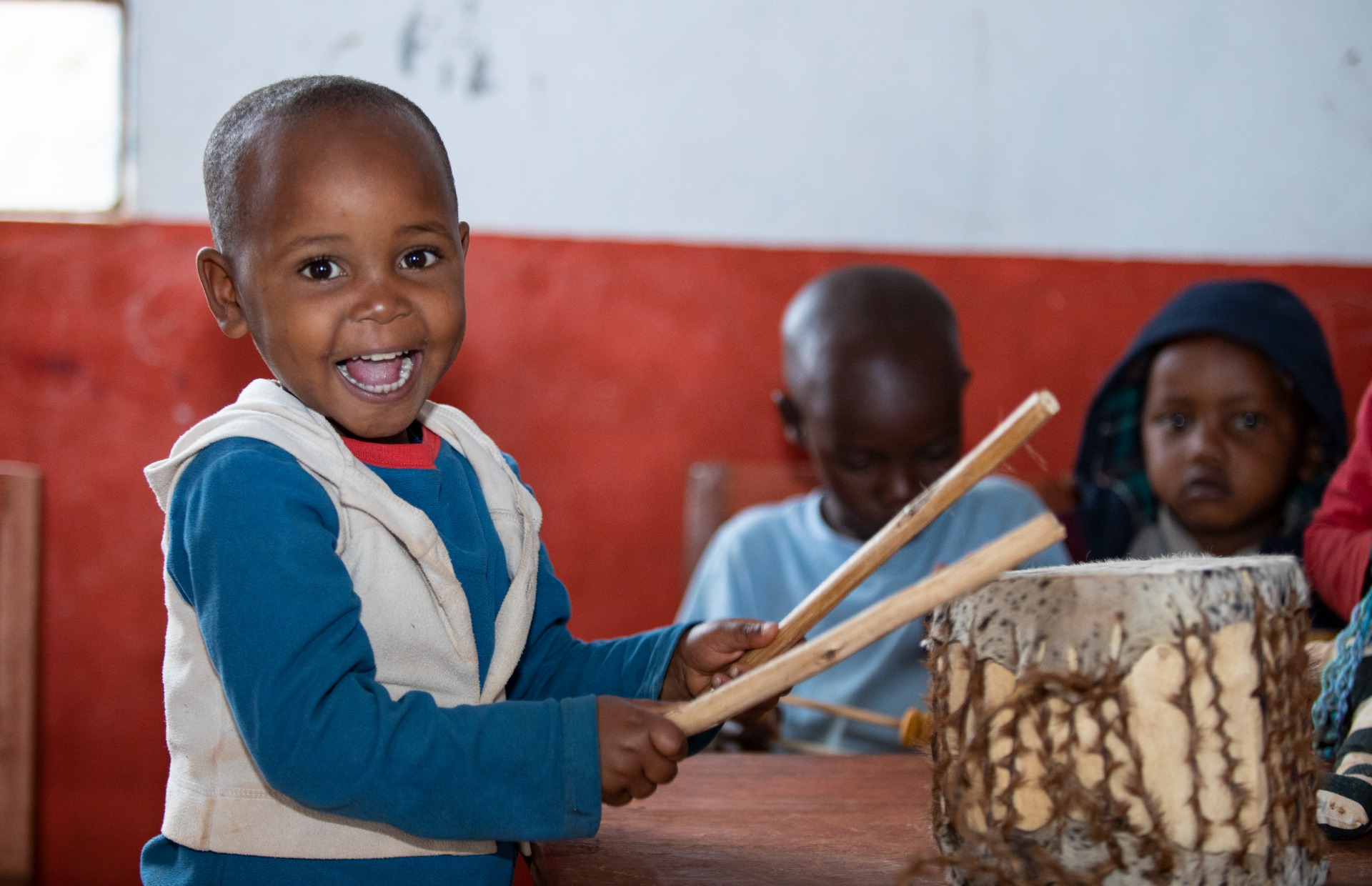
Since January 2024, Help a Child is certified against the Core Humanitarian Standard! We passed the rigorous scrutiny by the independent certification body HQAI – Humanitarian Quality Assurance Initiative. Our certification objectively demonstrates that we comply with the requirements of the CHS. It means that we put affected children and populations at the center of our programmes, include their feedback and opinion in our work and create programmes based on the needs of people. Geert de Jonge, Manager Expertise and Development, tells more about our certification journey during an interview conducted by HQAI.
Why did you decide to go from independently verified to certified?
“The most important pillar of our strategic plan is achieving more quality and impact. Our reason of existence is providing a future for children in need. We do our utmost to accomplish this and quality is our driving force. To aim for certification shows the world that we take our commitment seriously. Being part of a select group of professional organizations that meet this highest standard, motivates us to continue to live up to this ambition. The yearly maintenance audit of certification gives us an extra external drive to make it a continuous priority.”
Can you tell us more about your HQAI certification journey?
“We started our CHS journey in 2019 with our first self-assessment and we repeated this in 2022. Both of these self-assessments have resulted in improvement plans for the organization, pushing us to develop more effective and quality aid. In 2023 we have done the external audit and the reflections of the auditors have helped us to further grow. Looking back at this journey, we really improved in quality in for example Community Based Feedback, Knowledge Management, Disaster Risk Reduction, Partnership Management and communication with communities.”
What were the challenges you encountered?
“The investment of time and resources of the external audit were challenging, but outweighs the benefits of identifying sharp and critical ways of improvement. As a relatively small NGO the CHS pushed us far, but also opened up new avenues for further funding by larger donors enabling us to provide more impact for more children in need.”
What specific improvements have you seen?
“Community Based Feedback: in 2019 this was a completely new topic for us. We have always invited the communities to share their feedback, but now we have been able to setup a clear mechanism for channelling this feedback and responding to that feedback. This is a very visible improvement at Help a Child, from policy level to field level.
Knowledge Management: we realized in 2018 during a synthesis evaluation of all our projects that just creating high quality policy documents is not enough. It is really all about how to ensure we reach the hearts and minds of our field staff so that they understand and live by our philosophy. We introduced all kinds of trainings, information exchange, e-learnings and started with Knowledge Management as an important pillar in our organization.
Disaster Risk Reduction: up to 2019, we were organized in silos: one silo for development programmes and one silo for Disaster Response. Triple Nexus as an important discourse came up in our sector and also CHS pushed us to really connect development with Disaster Response. This resulted in more attention for Disaster Risk Reduction in our development programmes and more sustainability and empowerment approaches in Disaster Response.
Partnership Management: with the support of CHS we have been able to improve on equal partner relationship, and becoming more transparent in the relationship with our implementing partners. Our multi-annual contracts changed accordingly and we have further invested in the relationship with our implementing partners.
Communication with communities: during the external audit in 2023, we realized we need to improve on the intensity and quality of our communication to our beneficiaries, explaining who Help a Child is as the donor behind our implementing partners and about what integrity means to us. In the following years we want to further improve quality on this topic.”
What was your experience of collaborating with the HQAI auditors?
“The auditors were incisive and analytically proficient, directing our organization to the right points and ensuring that this did not feel like a paper audit but really contributed to clear areas of improvement at policy and field level. We appreciated their support and their push to further improve our quality.”
What are the expectations from donors now that you will be CHS certified? Do you think they will change?
“We expect more and more donors to adopt the CHS standard and by doing so increase the level of CHS compliance. For us, CHS is the highest quality standard and by adhering to it we see possibilities to further diversify our donor portfolio adhering to the highest compliance requests.”
In summary, what impact has the certification had on your work?
“The process to achieve certification has been very helpful. We now have a clearer understanding of where systems, policies and practices are strong and effective, and where further improvement is needed. The detailed incisive audit report has helped us to improve. The entire process was an excellent opportunity to put the CHS at the forefront in the entire organization and realign our activities and procedures accordingly. The CHS motivates us to walk the extra mile when it comes to meeting the highest quality standards.”
Read the shared interview with Tearfund and the Dutch Relief Alliance

